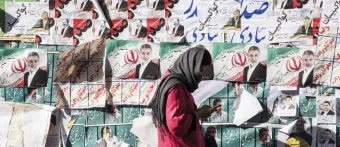Post-Election Iran and Syria: Continuity or Change?

Post-Election Iran and Syria: Continuity or Change?
Introduction
On June 18, conservative cleric Ebrahim Raisi won Iran’s presidential election to succeed moderate President Hassan Rouhani. For many, his victory came amid public dissatisfaction with the dire economic and political situation, along with widespread disqualification of reformist and moderate candidates, which significantly reduced voter turnout. Traditionally, lower turnout in Iranian elections means the victory of conservative or so-called ‘hardline’ figures and so Raisi’s victory was in many ways following a theme. However, even though the election and its outcome indicate a significant shift in Iran’s domestic politics toward more authoritarianism, its impacts on foreign policy, including Iran’s strategy in Syria, will be less tangible. Over the past several years, the Islamic Revolutionary Guard Corps (IRGC) has almost completely dominated Iran’s regional policy. At the same time, Iran’s Supreme Leader Ayatollah Seyyed Ali Khamenei openly seeks to limit the role of the president in foreign policy. Consequently, this means that Iran’s policy in Syria in the post-election period will be more about continuity than about change.
The ideas expressed are those of the author not the publisher or the author’s affiliation.
Published in July 2021
All rights reserved to GCSP
Part of the Syria Transition Challenges Project
Hamidreza Azizi, PhD, is an Alexander von Humboldt fellow at the German Institute for International and Security Affairs (SWP) in Berlin. He was an assistant professor of regional studies at Shahid Beheshti University (2016-2020) and a guest lecturer at the department of regional studies at the University of Tehran (2016-2018).

